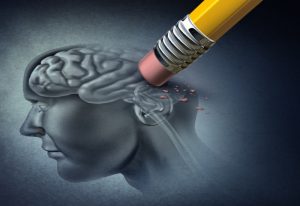Although your brain may seem to shut off when you sleep, research has found that it actually remains very active throughout the night. In fact, some of the most vital maintenance work in our brain tissue is performed late at night while we sleep. When we are asleep, immune cells maintain brain tissue and a complex glymphatic system washes our tissues of metabolic wastes. If you needed another reason to ensure you get the sleep that’s so vital to your health, here it is.
Your Brain on Sleep

When we sleep, our brain goes through electrical cycles that can be measured and even used to predict whether we are dreaming. These cycles consist of electrical activity that our brains use to communicate between brain cells, or neurons. We go through cycles of non-REM and REM sleep to get the right amount of rest while allowing our brains to rebuild for the coming day.
These sleep cycles take us through deep and light sleep, dreaming and non-dreaming, repeatedly until our brains are done cleaning house and have completed their tasks for the night. While we dream away, the human brain is busy preparing for a new day.
The Work of a Sleeping Brain
Electrical activity spikes when we are sleeping because our brains are hard at work — forming literal spikes on an EEG that are known as sleep spindles. When we sleep, our brains consolidate memories, the final step in learning new information. This is the reason that people who study just before bed score higher on exams than people who study at other times.
Electrical activity is not the only workout that our brain gets while we sleep. Our brains also flood our neurons with cerebrospinal fluid at night to help wash away metabolic wastes. When this system, called the glymphatic system, does not work correctly, we are at higher risk of neurodegenerative diseases such as Alzheimer’s disease.
According to a new study, this thorough housecleaning may go beyond simply hosing down tissues. Scientists have found that specialized immune cells maintain brain tissue when we sleep, literally “taking out the trash.”
How Immune Cells “Take out the Trash” While We Sleep
Microglia are a crucial part of brain health. These immune cells are clustered in brain tissues and help to form the blood-brain barrier, which keeps toxic chemicals and most bacteria from entering and damaging our brains.
Microglia play a huge role in keeping our brains clean. They remove any unwanted chemicals while identifying and repairing damage to our tissues. However, these immune cells do not work effectively when we are awake. According to a new study, microglia are designed to do most of their dirty work while we are fast asleep.
When we sleep, our hormonal structure changes drastically. Our levels of melatonin increase dramatically while the hormones cortisol, epinephrine and norepinephrine decrease. This is significant because, according to this new study, microglia themselves fall asleep when norepinephrine levels are high. Then, when we fall asleep and the levels plummet, they wake up to perform their essential cleaning tasks.
Insomnia: Bad for the Brain

As we grow older, insomnia and other sleep disorders can make an even greater difference. People who do not get enough sleep are at a higher risk of developing Alzheimer’s disease and other serious neurodegenerative diseases. In addition, a dysregulated circadian rhythm can leave you at higher risk of mental illness, delirium and other illnesses that can tarnish your golden years.
Finding Your Dreams in Deep Sleep
Getting enough sleep is essential to living a long and healthy life. However, many people still toss and turn much of the night. If you are struggling to sleep, consider whether you have habits that can disrupt your internal clocks. Do you keep screens such as your phone and television on late at night? Do you have an evening routine that helps you to relax and get in the mood for sleep? Even small changes to your normal routine may increase your odds of falling asleep and staying asleep all night.







